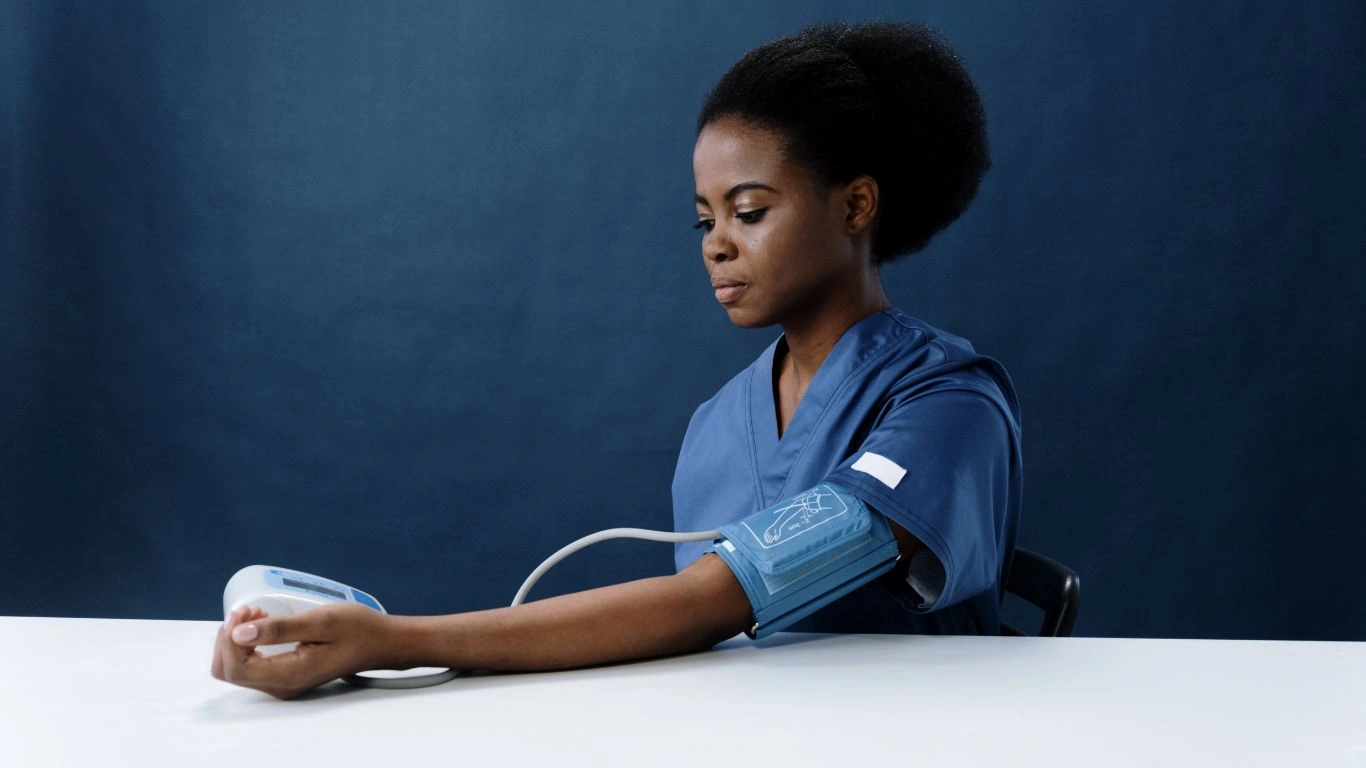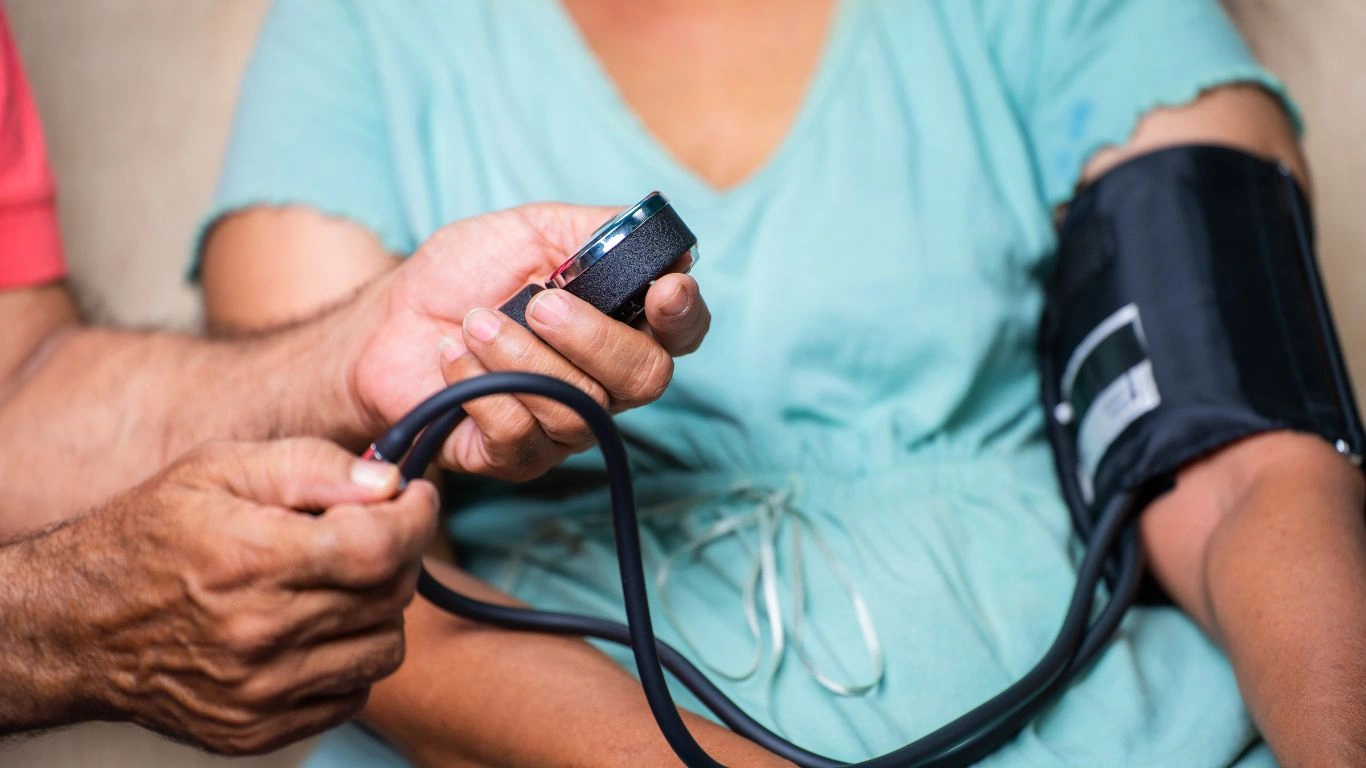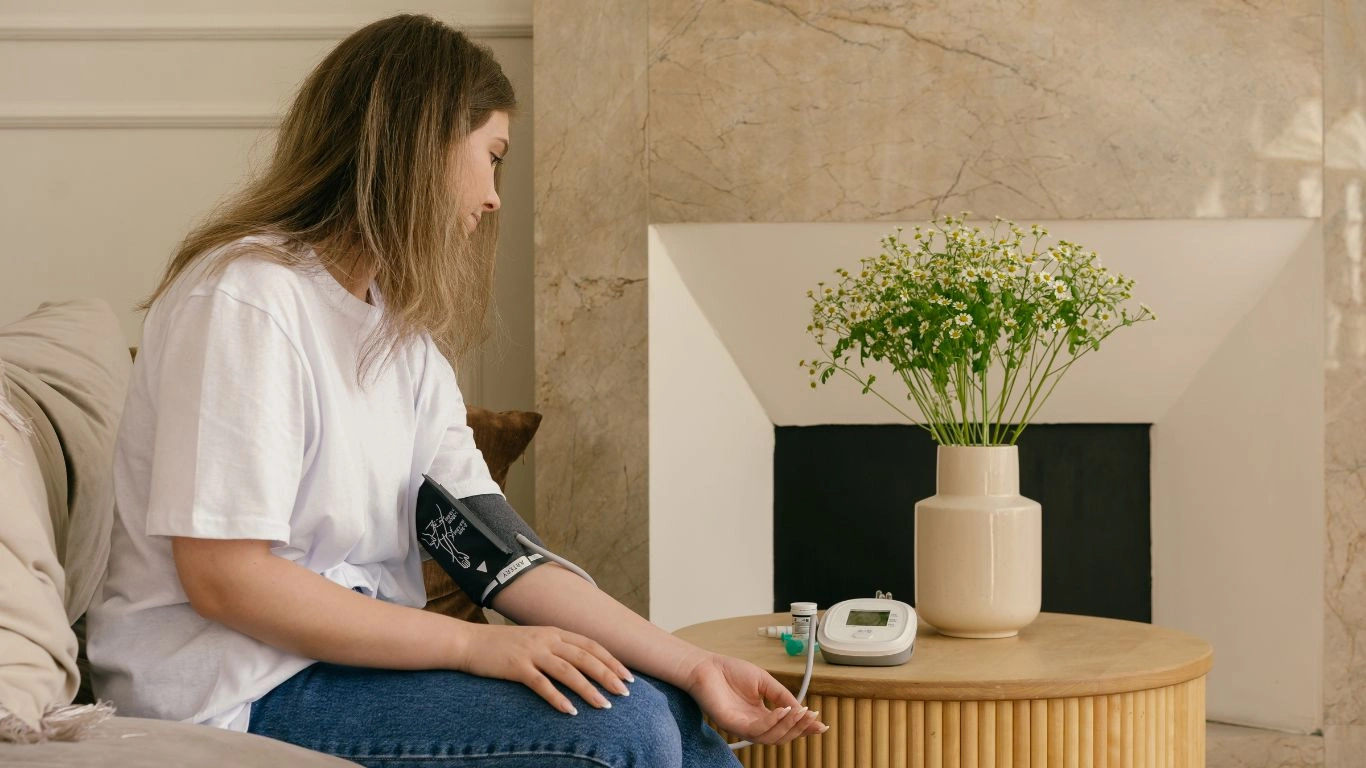The Impact of Birth Control on Blood Pressure: What You Need to Know
Hey there! Gwenna here, and today we’re diving into an important topic: the impact of birth control on blood pressure. As someone who specializes in hypertension, I’ve seen firsthand how women’s health issues like birth control can influence their blood pressure in various ways. If you’re like many of my patients, you may have concerns or questions about how your birth control options might be affecting your body, especially when it comes to blood pressure. So, let’s break it down and talk about what the science says, as well as what you should be aware of if you’re managing high blood pressure.
Understanding Birth Control and Its Forms

First things first, let’s talk about the different types of birth control. It’s important to know that not all birth control methods are the same, and the effect on your blood pressure can vary depending on the method you use. Here’s a quick overview of the most common forms:
- Oral Contraceptives (The Pill) – These are probably the most well-known and widely used form of birth control. They contain hormones like estrogen and progestin, which prevent pregnancy by inhibiting ovulation and thickening cervical mucus.
- Intrauterine Device (IUD) – IUDs come in hormonal and non-hormonal forms. The hormonal IUD releases progestin, which can have varying effects on blood pressure.
- Implants – Similar to IUDs, implants are small rods placed under the skin, releasing progestin. This method is effective for long-term contraception and can also have an impact on blood pressure.
- Injectables – The Depo-Provera shot is a popular injectable contraceptive that also contains progestin. Again, this method can affect your blood pressure, but the effects may differ from those of oral birth control.
- Patch and NuvaRing – These are other hormonal methods of birth control that release estrogen and progestin through the skin or vaginal walls, respectively.
How Birth Control Affects Blood Pressure
Now that we know the basics of birth control methods, let’s dig into the real question: How does birth control affect blood pressure? As a hypertension expert, I can tell you that the connection is a bit more complex than many people realize. Some birth control methods have a direct impact on blood pressure, while others might not have much of an effect at all.
The primary culprit when it comes to blood pressure issues is the hormone estrogen, which is found in many types of birth control. Estrogen has been shown to cause fluid retention and constrict blood vessels, both of which can raise blood pressure. This is why some women experience a slight increase in blood pressure when using hormonal contraceptives that contain estrogen.
But here’s the thing: not all women react the same way. Some women may not experience any changes in their blood pressure at all, while others may notice an increase. This is why regular monitoring of blood pressure is essential if you’re using hormonal birth control, especially if you have a history of hypertension.
Factors That Influence the Impact of Birth Control on Blood Pressure

So, what makes the difference? Why do some women see changes in blood pressure and others don’t? Several factors play a role in how birth control can affect your blood pressure. Let’s go over the most important ones:
1. The Type of Birth Control
As mentioned earlier, not all birth control methods are the same. Birth control pills that contain estrogen are more likely to cause a rise in blood pressure than methods like the IUD or implant, which release only progestin. So, if you’re using a method with estrogen, it’s crucial to monitor your blood pressure regularly, especially if you’re prone to high blood pressure.
2. Your Age and Weight
Your age and weight can also influence how birth control affects your blood pressure. Women who are older or overweight may be more likely to experience an increase in blood pressure when using hormonal birth control. If you fall into one of these categories, it’s especially important to have regular check-ups with your doctor to monitor your blood pressure.
3. Your Overall Health
If you already have high blood pressure or a history of hypertension, the use of hormonal birth control may require extra caution. Your doctor may recommend alternative methods of contraception, such as a progestin-only pill or an IUD, to help avoid complications.
4. Smoking and Other Lifestyle Factors
Smokers, listen up! If you smoke while using hormonal birth control, your risk of developing blood clots increases, and it can also contribute to an increase in blood pressure. Smoking in combination with estrogen-containing contraceptives can be a risky combination. It’s a good idea to talk to your healthcare provider about your smoking habits and consider quitting for the sake of both your heart and overall health.
What the Research Says

There’s a lot of research out there that looks at the impact of birth control on blood pressure, and some of it is a little conflicting. Overall, studies suggest that while most women don’t experience significant changes in blood pressure, there’s a subset of women who may experience a rise. According to a study published in the American Journal of Obstetrics and Gynecology, women using oral contraceptives that contain estrogen had an increased risk of developing high blood pressure compared to women who used non-hormonal birth control or progestin-only methods.
However, the increase in blood pressure tends to be modest in most women. Still, it’s enough to warrant attention, especially if you’re already at risk for hypertension. I always tell my patients: Better safe than sorry! It’s crucial to stay proactive about monitoring your health, and birth control is no exception.
In the next section, we’ll talk more about how you can manage your blood pressure if you’re using birth control and what alternatives are available. Stay tuned!
How to Manage Blood Pressure While Using Birth Control

If you’re concerned about how birth control might be affecting your blood pressure, don’t worry—you’re not alone! Managing your blood pressure while using hormonal contraception is something I talk about regularly with my patients. It’s all about staying on top of your health, making adjustments when necessary, and knowing your options.
The first thing I always recommend is regular monitoring. Whether you’re using birth control pills, an IUD, or another method, it’s essential to have your blood pressure checked routinely. Ideally, you should have your blood pressure measured at least once a year, but if you have a history of hypertension or risk factors, more frequent checks may be necessary. This way, if you notice any changes, you can address them early.
1. Keep Track of Your Blood Pressure at Home
One of the easiest ways to keep tabs on your blood pressure is to invest in a good home blood pressure monitor. I’ve had patients tell me how much more at ease they feel knowing they can track their own numbers between doctor’s visits. There are plenty of reliable, user-friendly devices available on the market, and most of them are affordable.
Tip from me: Take your readings at the same time each day for consistency. Ideally, you should measure your blood pressure in the morning before you eat or drink anything, as this tends to give you the most accurate results. It’s also a good idea to measure it after sitting down and relaxing for a few minutes. If you’re unsure about your readings, feel free to bring your monitor to your next doctor’s appointment to compare it to their equipment.
2. Talk to Your Doctor About Alternative Contraceptive Methods
If you’re noticing that your blood pressure is creeping up after starting a hormonal birth control method, it might be time to have a conversation with your doctor about alternatives. There are many non-hormonal options available that won’t affect your blood pressure as much.
For example, non-hormonal methods like the copper IUD or barrier methods (like condoms or diaphragms) are great alternatives. These options allow you to avoid the estrogen found in many hormonal methods while still providing effective contraception. And if you’re someone who’s been diagnosed with hypertension or is at higher risk, these options might be more suitable.
What Are the Best Birth Control Options for Women with High Blood Pressure?

If you’re managing high blood pressure, choosing the right birth control is crucial. The good news is that there are still options for you—it’s just a matter of finding what works best for your body and health goals.
1. Progestin-Only Pills
If you’re looking for a hormonal option that’s a bit gentler on your blood pressure, the progestin-only pill could be a great choice. Unlike combined oral contraceptives (those with both estrogen and progestin), progestin-only pills don’t carry the same risks for increasing blood pressure. They work by thickening the cervical mucus and thinning the lining of the uterus to prevent pregnancy.
From personal experience, I’ve found that many women with hypertension tolerate progestin-only pills much better than estrogen-containing pills. While they might not be as effective as combined pills in preventing pregnancy, they still offer a high level of protection when taken consistently and correctly.
2. The IUD (Intrauterine Device)
For long-term contraception with minimal impact on blood pressure, the hormonal IUD is an excellent option. This device releases a small amount of progestin directly into the uterus, preventing pregnancy for up to 3-6 years, depending on the type. The amount of hormone released is much smaller than what’s found in oral contraceptives, making it less likely to affect your blood pressure.
One of my patients, Sarah, had been on birth control pills for years but noticed her blood pressure rising steadily. She switched to the hormonal IUD, and within a few months, her blood pressure stabilized without compromising her contraception. It’s worth considering, especially if you’re looking for something low-maintenance and highly effective.
3. The Implant
Similar to the IUD, the implant is a small rod inserted under the skin that releases progestin. It’s another long-term solution for women with high blood pressure who want a hormone-based method of contraception. The implant is effective for up to 3 years and has minimal impact on blood pressure. Plus, it’s super convenient because you don’t have to worry about taking a pill every day.
Many women I know find the implant to be a game-changer. It provides effective birth control without the daily hassle, and for those who struggle with remembering to take a pill, it’s a great option. The biggest downside I’ve seen is some users report irregular bleeding at first, but that usually improves after a few months.
4. Barrier Methods
If you’re looking for a completely hormone-free option, barrier methods like condoms, diaphragms, and cervical caps can be highly effective in preventing pregnancy. They don’t affect blood pressure at all since they don’t involve any hormones. However, they do require consistent use and may not be as convenient as other methods.
But here’s the thing—barrier methods are an excellent choice for women who either want to avoid hormones altogether or need a backup method alongside another form of contraception (like an IUD). The added bonus? They also provide protection against sexually transmitted infections (STIs), which is an important consideration for many women.
How to Know If Your Birth Control Is Affecting Your Health

If you’re concerned that your birth control might be affecting your blood pressure or overall health, there are a few signs to look out for. Keep an eye on any unusual symptoms such as:
- Headaches or migraines
- Swelling in your hands, feet, or ankles
- Sudden weight gain
- Feeling dizzy or lightheaded
- Chest pain or shortness of breath
Any of these symptoms could be a sign that your blood pressure is rising. If you notice any of them, it’s important to schedule a visit with your healthcare provider as soon as possible. Don’t hesitate to speak up about any concerns—you know your body best!
In the next section, we’ll explore how you can manage your blood pressure naturally, with diet, exercise, and lifestyle changes that can complement your contraceptive choices. Stay tuned!
How to Manage Blood Pressure Naturally with Lifestyle Changes

So far, we’ve covered how birth control can impact blood pressure, and what your options are if you’re concerned about the effects it may have on your health. Now, let’s take a deeper dive into some of the natural ways you can manage your blood pressure while using birth control. I’m a firm believer in a holistic approach—medications, of course, have their place, but simple lifestyle changes can go a long way in supporting your overall well-being.
Managing high blood pressure isn’t just about watching your salt intake or taking your medications as prescribed. It’s about looking at the bigger picture—your whole lifestyle. Here are some tried-and-true tips that I recommend to my patients, which you can start implementing today to help keep your blood pressure in check:
1. Focus on a Heart-Healthy Diet
The saying “You are what you eat” couldn’t be truer when it comes to managing high blood pressure. Diet plays a huge role in regulating blood pressure, and I can tell you from my experience that even small changes can make a big difference over time. Here’s what you should focus on:
- Increase Potassium-Rich Foods: Potassium helps balance out the negative effects of sodium and reduces tension in your blood vessel walls. Think bananas, sweet potatoes, spinach, and avocados.
- Cut Back on Salt: Sodium can cause your body to retain excess fluid, leading to an increase in blood pressure. Avoid processed foods, canned soups, and pre-packaged meals, which are often loaded with sodium. Instead, cook your meals at home and season with herbs and spices.
- Eat Whole Grains: Foods like oatmeal, quinoa, and brown rice are high in fiber and promote healthy blood flow, which can help keep your blood pressure stable.
- Include Lean Proteins: Choose lean meats like chicken and fish, and plant-based sources of protein like beans and lentils. These foods help maintain muscle mass and support healthy blood flow.
Trust me, after working with patients who’ve made diet changes, I’ve seen incredible results in managing blood pressure. Even if you’re still on birth control, a well-balanced diet will do wonders in lowering your risks.
2. Exercise Regularly
Exercise is another cornerstone of maintaining healthy blood pressure, and the best part is—you don’t have to become a gym rat to see improvements. Regular physical activity can help keep your heart and blood vessels in good shape, which is essential for managing hypertension.
Here’s a simple routine I suggest for most of my patients:
- Aerobic Exercise: Activities like walking, swimming, or cycling are great for raising your heart rate and improving cardiovascular health. Aim for at least 150 minutes of moderate-intensity exercise each week.
- Strength Training: Lifting weights or using resistance bands helps increase muscle mass, which in turn supports your metabolism and helps keep your blood pressure within a healthy range. Try strength training twice a week for best results.
- Yoga and Meditation: Stress is a major contributor to high blood pressure. Yoga, meditation, and deep-breathing exercises can help you relax, manage stress, and lower blood pressure over time.
What I’ve seen over the years is that patients who stay active tend to have better-controlled blood pressure, and it also helps to offset some of the side effects of birth control. Plus, it just feels good, right? Exercise can boost your mood, reduce stress, and keep you feeling strong and energized.
3. Manage Stress Effectively
Let’s talk stress—something I know we all deal with from time to time. Chronic stress is a major contributor to high blood pressure, and if you’re using birth control, it might make things worse. If you’ve ever had a stressful day, you’ve probably noticed your heart rate go up or that you feel a bit more tense in your body. Over time, that stress can add up and start impacting your blood pressure.
To manage stress, it’s important to have coping mechanisms in place. Here are a few stress-reduction strategies that I always suggest to my patients:
- Mindfulness Meditation: Taking just 10-15 minutes a day to practice mindfulness can significantly reduce stress and lower blood pressure. Apps like Calm and Headspace are great tools to get started.
- Deep Breathing Exercises: Simple breathing techniques—like inhaling deeply for 4 seconds, holding for 4, and exhaling for 4—can activate your parasympathetic nervous system, helping you relax and bringing your blood pressure down.
- Journaling: Writing about your thoughts and feelings can be a therapeutic way to process emotions and reduce stress. Plus, it’s a great way to clear your mind before bed for better sleep.
Incorporating even just a few of these stress-relieving habits into your daily routine can have a powerful effect on both your mental and physical health. And trust me, as someone who’s dealt with stress firsthand, I know how important it is to prioritize self-care.
When to Seek Professional Help
While lifestyle changes are powerful tools for managing blood pressure, sometimes, you may need additional support from a healthcare professional. If you’ve made all the right adjustments—eating well, exercising, managing stress—and still find your blood pressure creeping up, it might be time to talk to your doctor.
Your healthcare provider can help determine whether a change in your birth control method or additional medications are necessary. They might recommend:
- Adjusting your birth control to a progestin-only method or non-hormonal option.
- Prescribing medications to help manage blood pressure more effectively.
- Referring you to a specialist for further evaluation and treatment.
Don’t hesitate to reach out to a healthcare provider if you’re concerned about your blood pressure. The sooner you catch any changes, the better you’ll be at preventing long-term complications. As a hypertension expert, I can’t stress enough the importance of proactive care and open communication with your healthcare team.
References & Disclaimer
For more information on managing high blood pressure and finding the right birth control method for you, check out the resources available on the Health Usias website. I’ve gathered research and personal insights to help guide you through your journey to better health.
Disclaimer: The information provided in this article is for informational purposes only and should not be considered as medical advice. Always consult with a healthcare professional before making any changes to your birth control or treatment plan. Every individual’s health situation is unique, and a personalized approach is the best way to ensure your health and well-being.

Dr. Gwenna Aazee is a board-certified Internal Medicine Physician with a special focus on hypertension management, chronic disease prevention, and patient education. With years of experience in both clinical practice and medical writing, she’s passionate about turning evidence-based medicine into accessible, actionable advice. Through her work at Healthusias.com, Dr. Aazee empowers readers to take charge of their health with confidence and clarity. Off the clock, she enjoys deep dives into nutrition research, long walks with her rescue pup, and simplifying medical jargon one article at a time.







